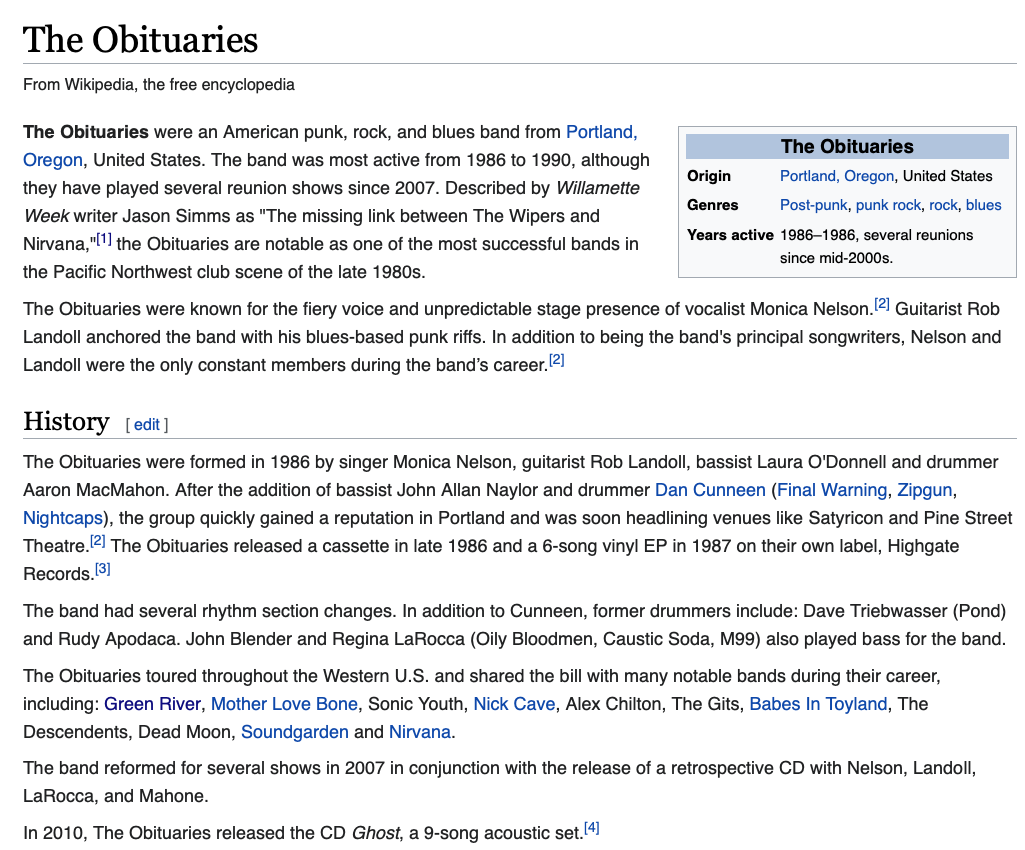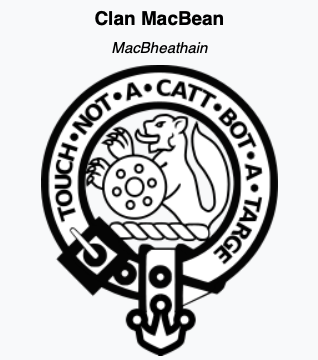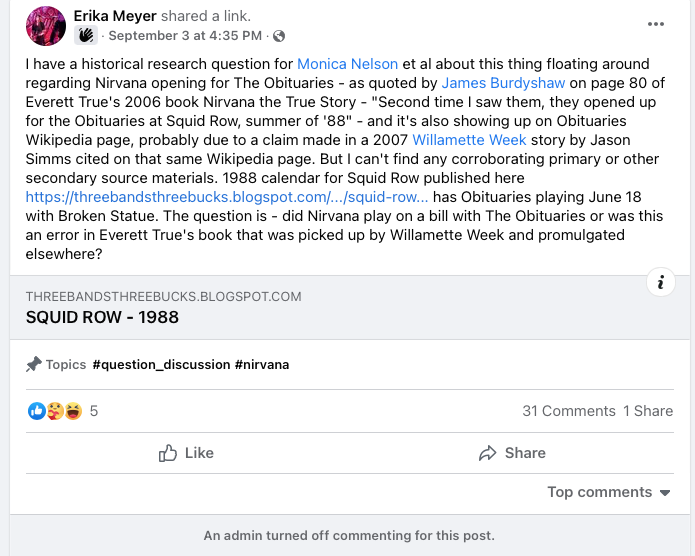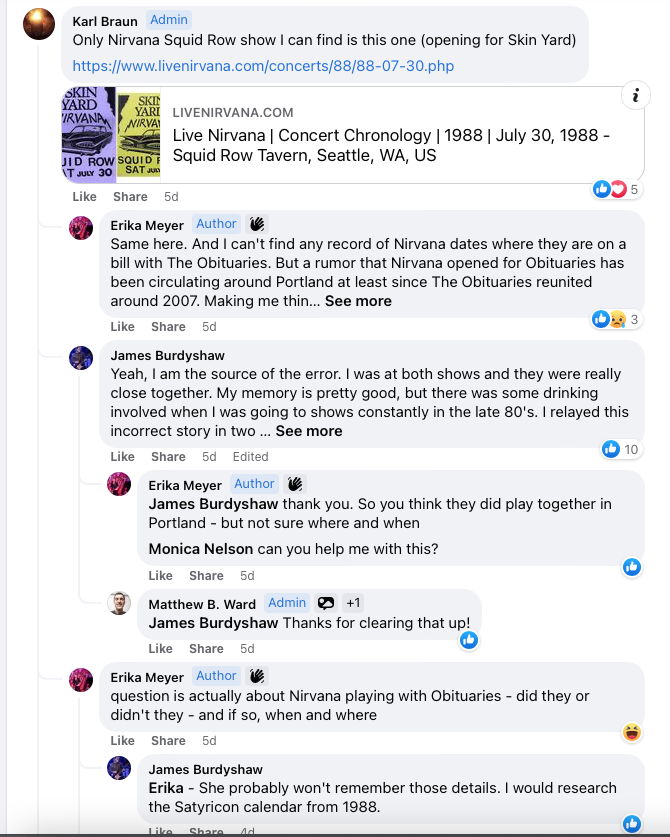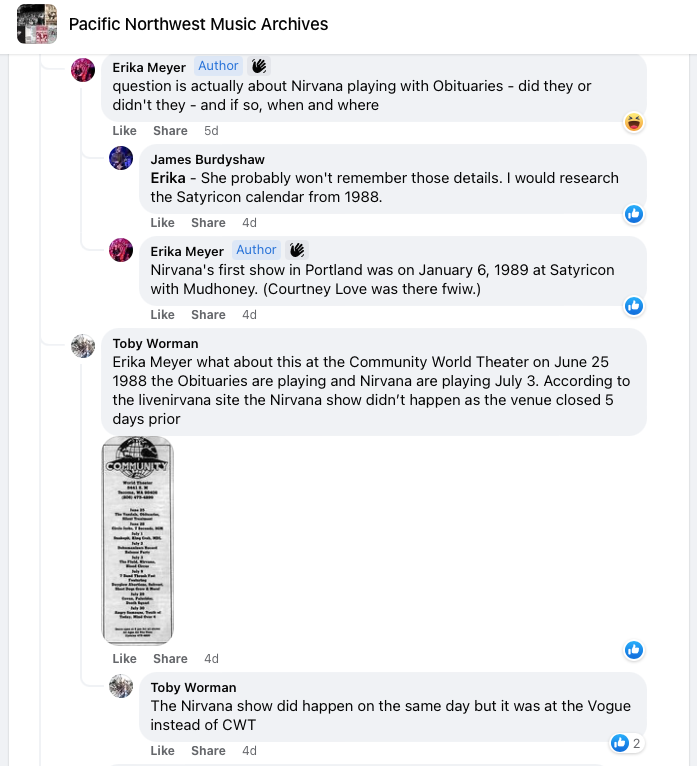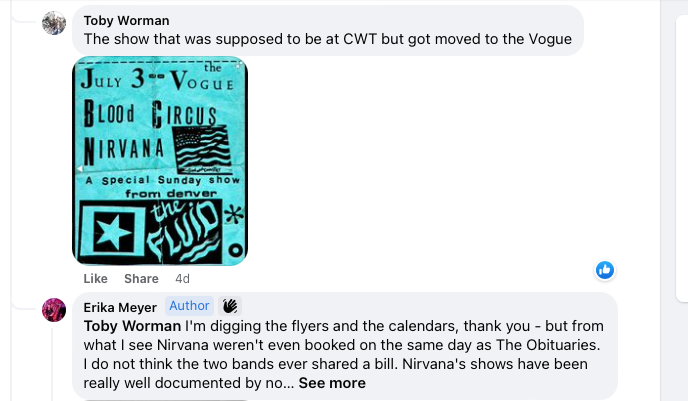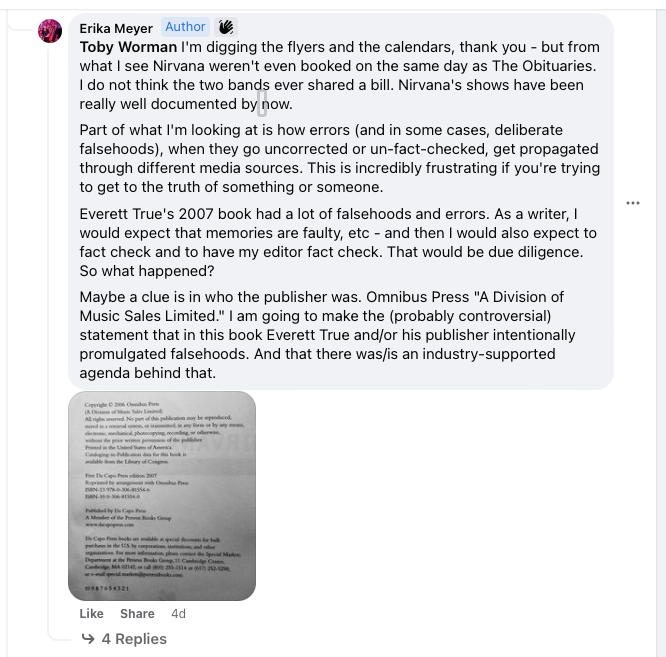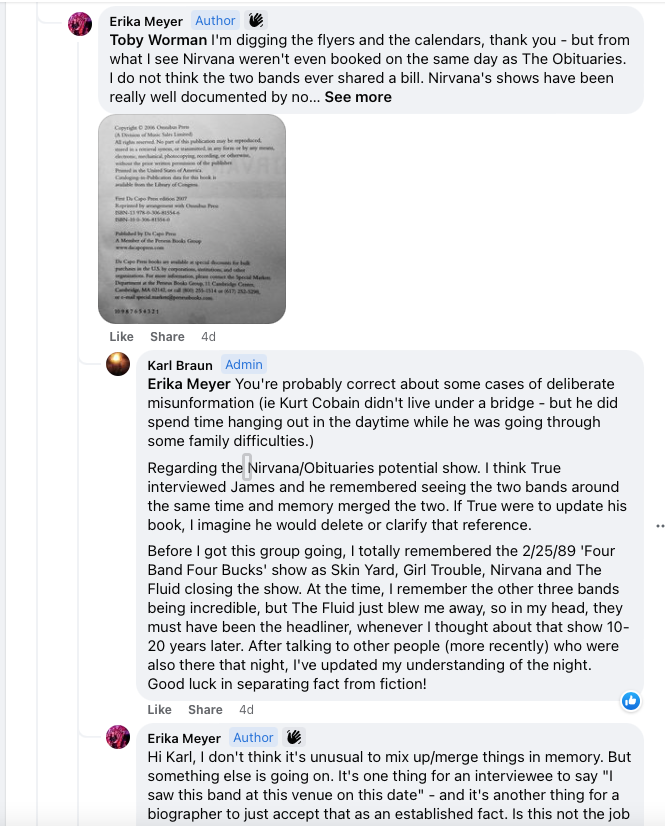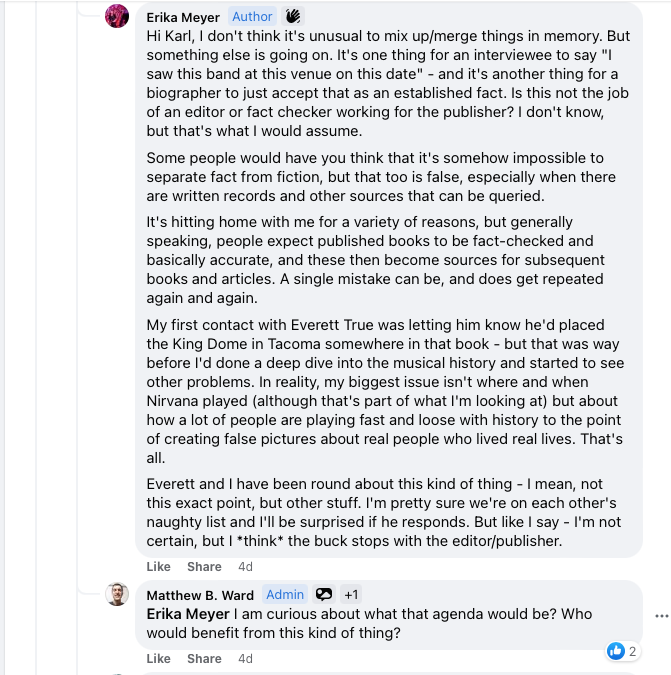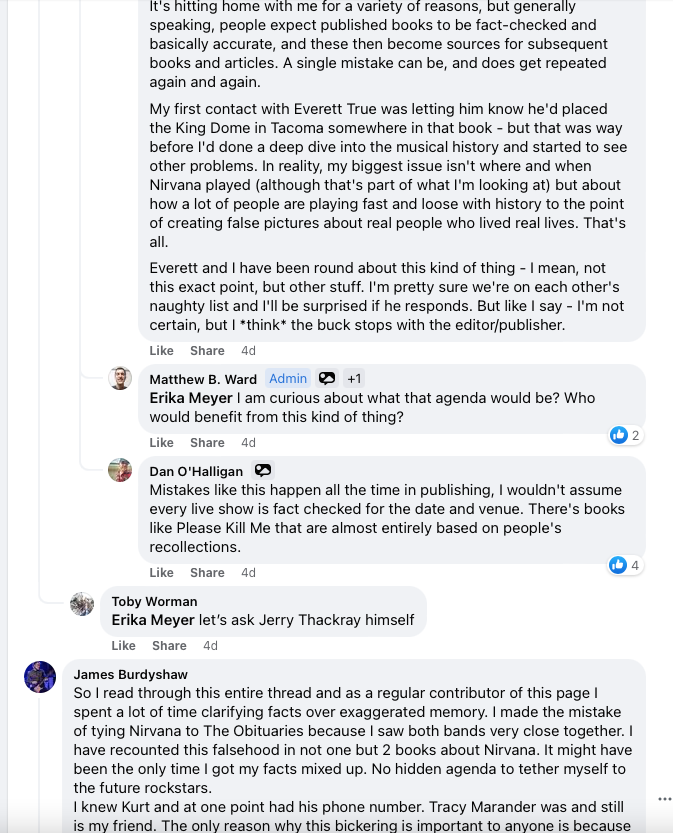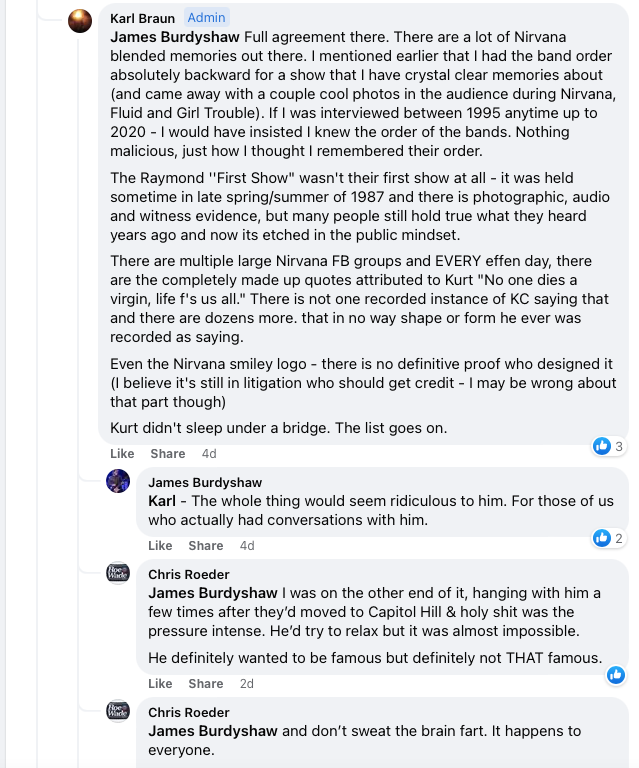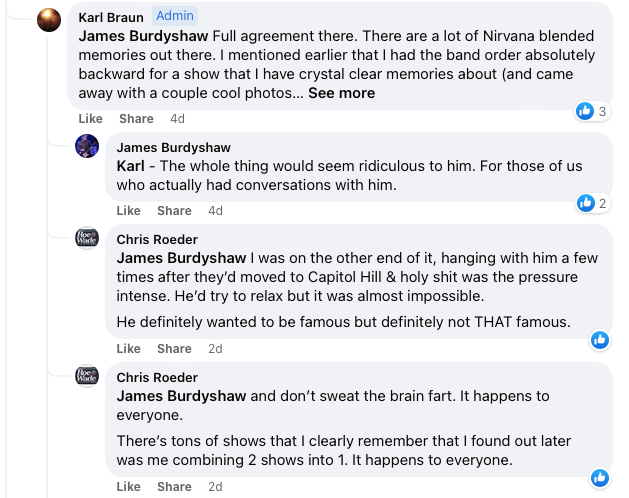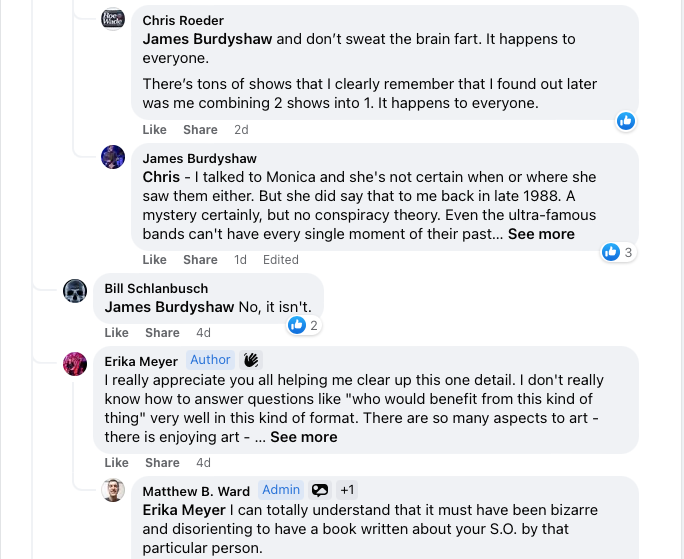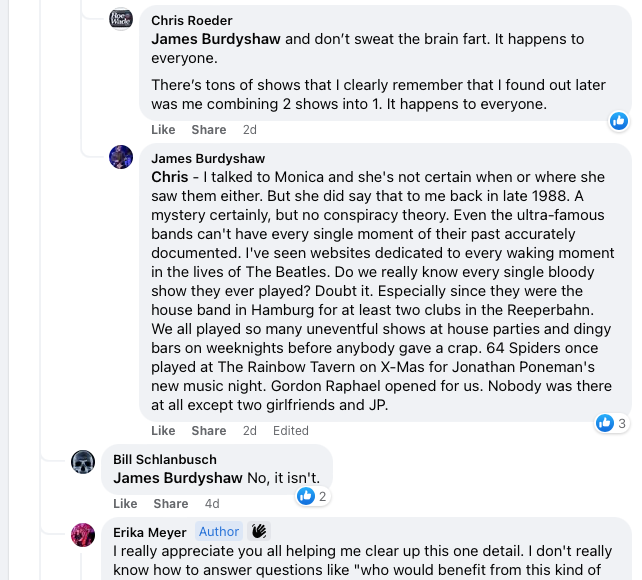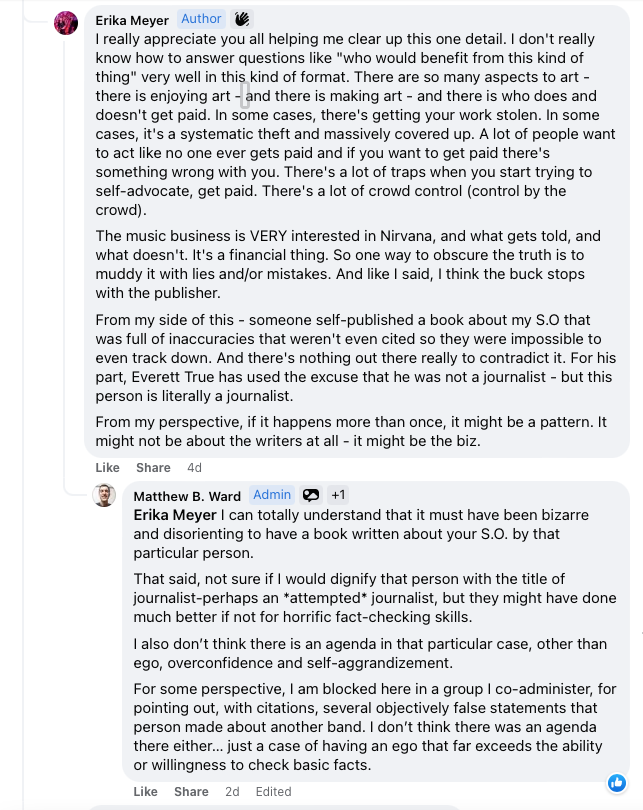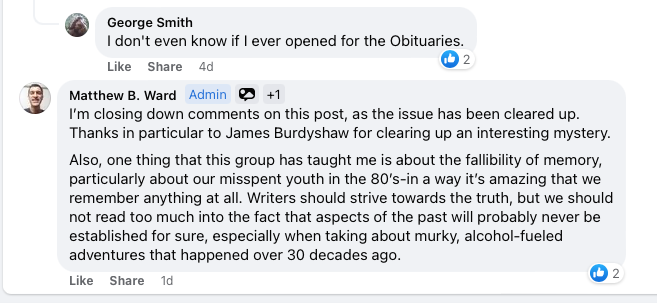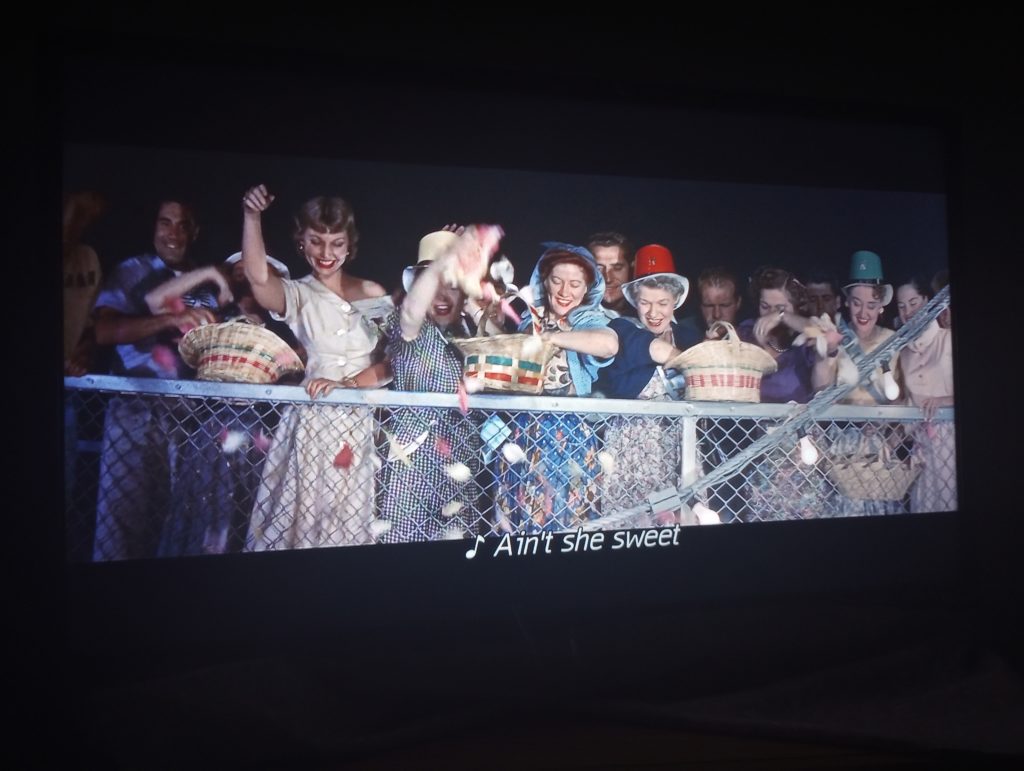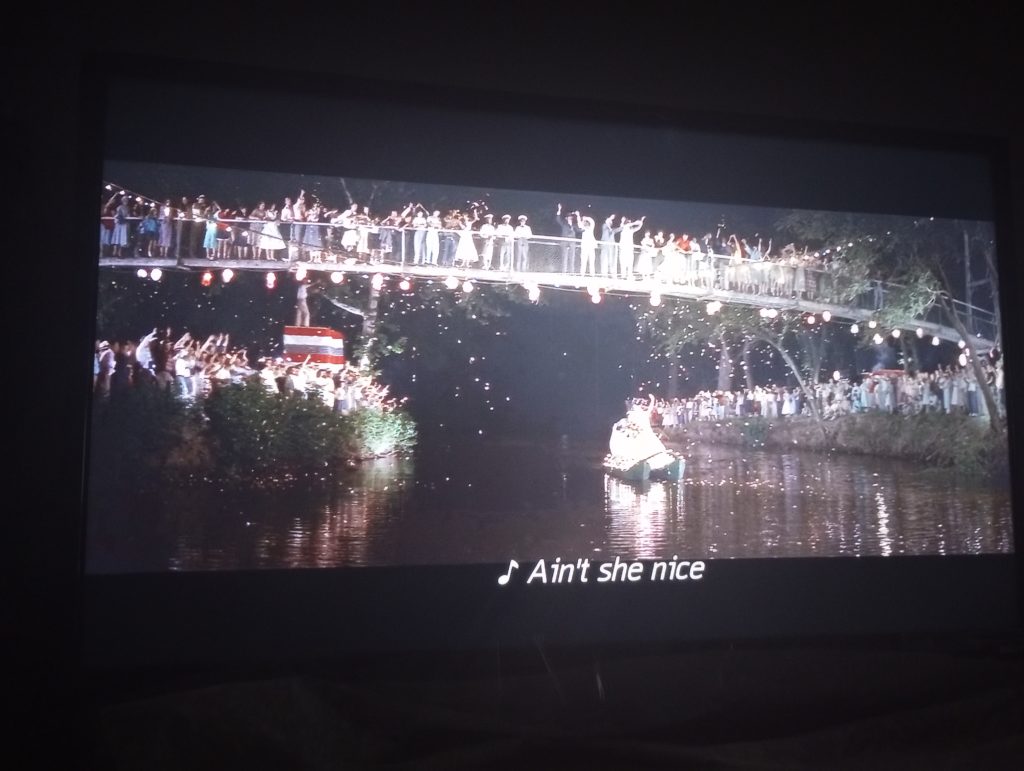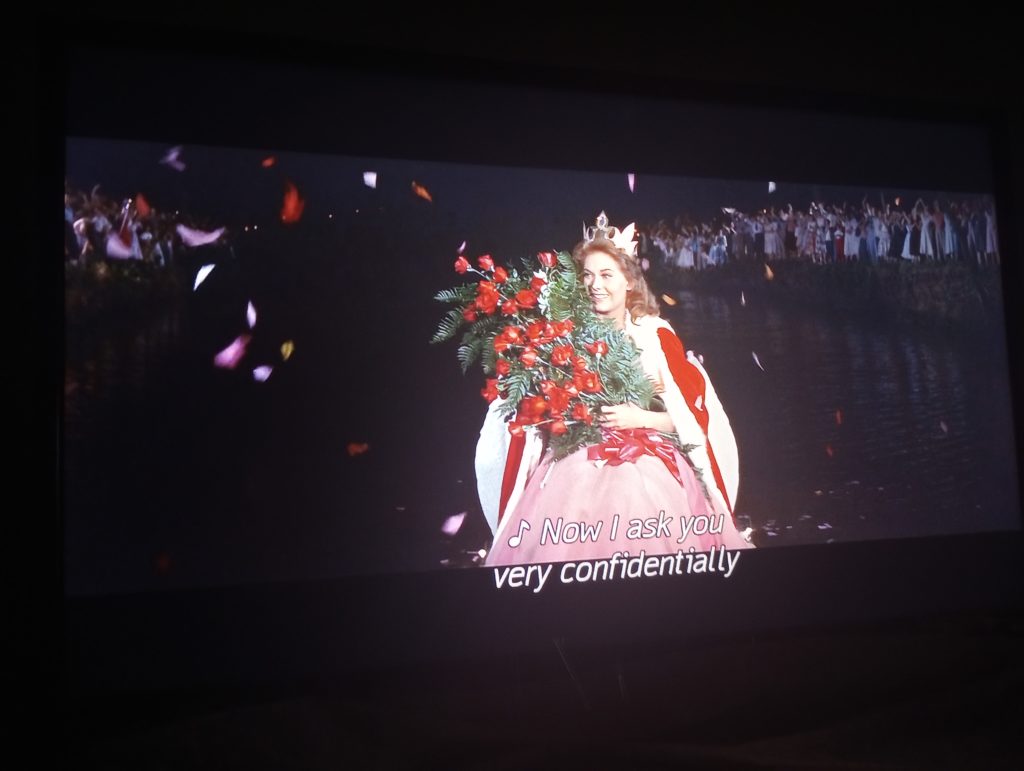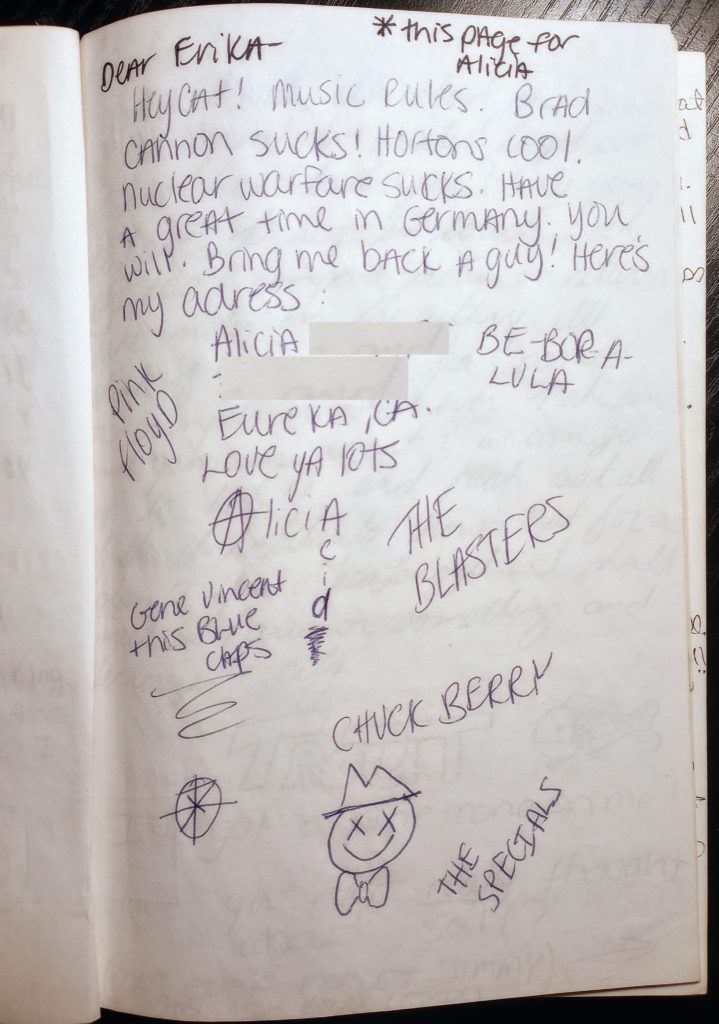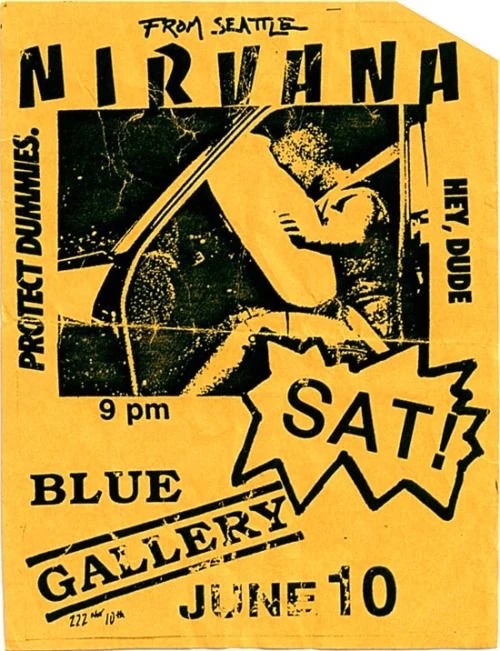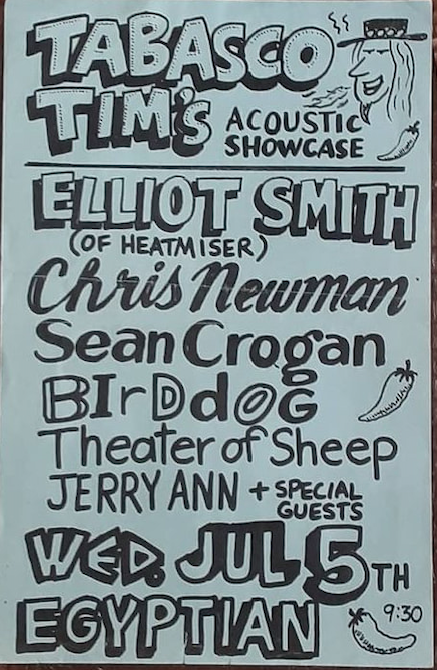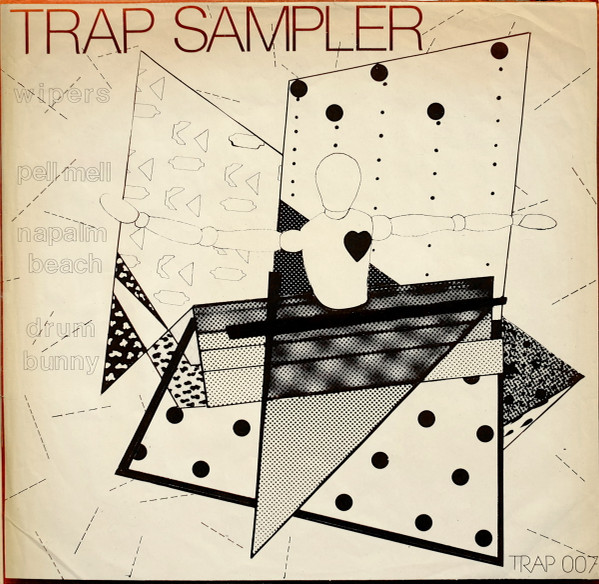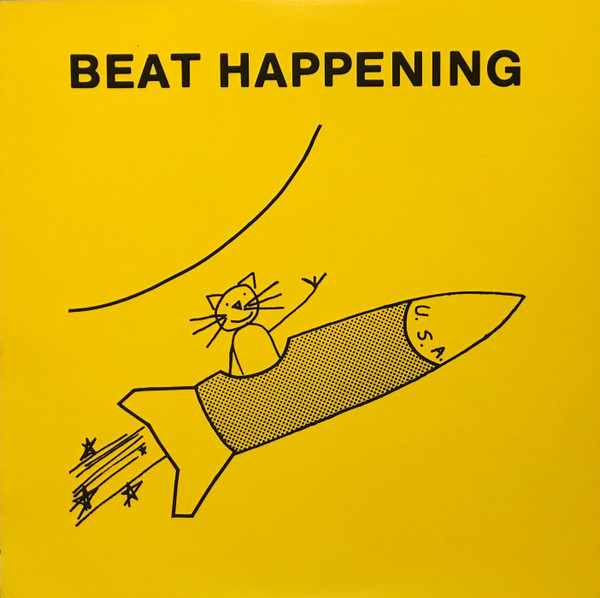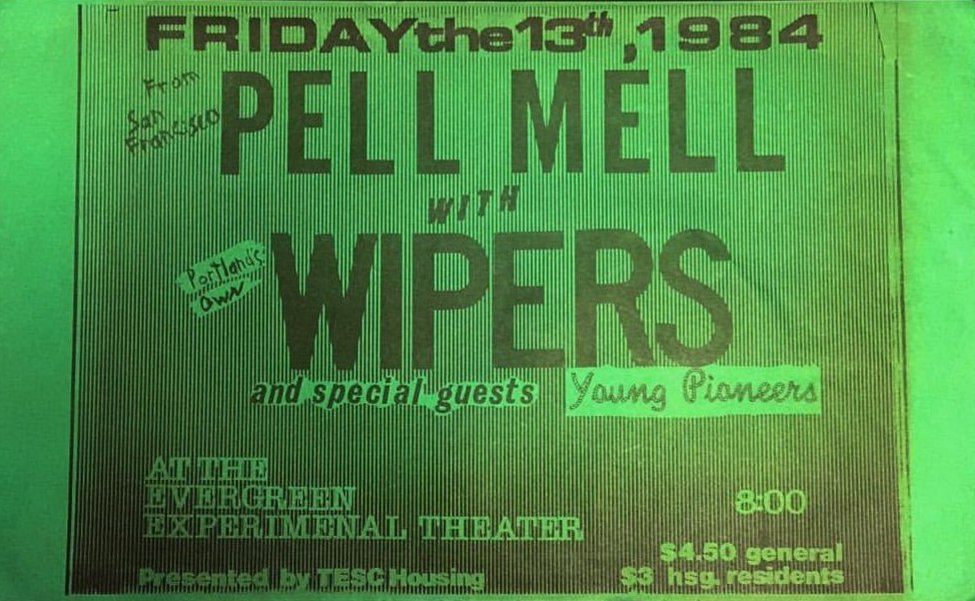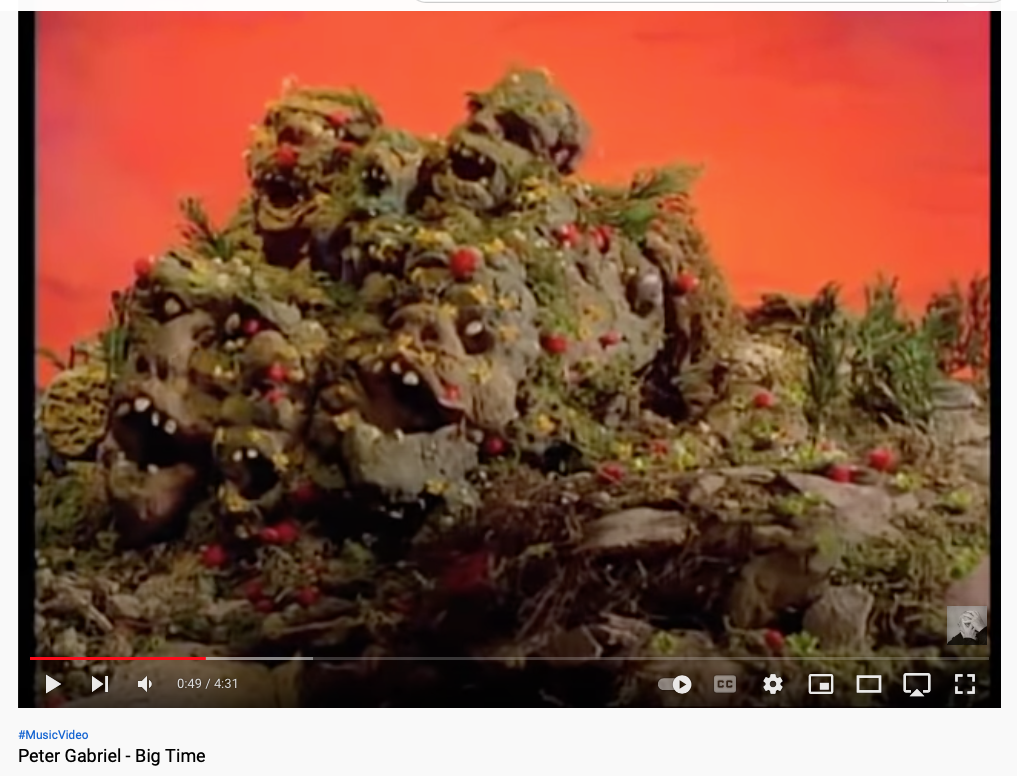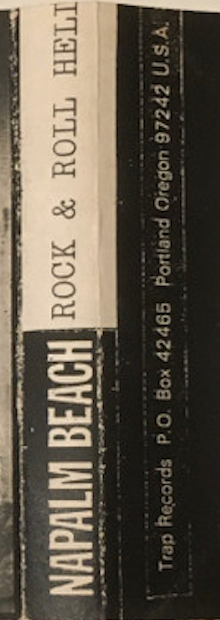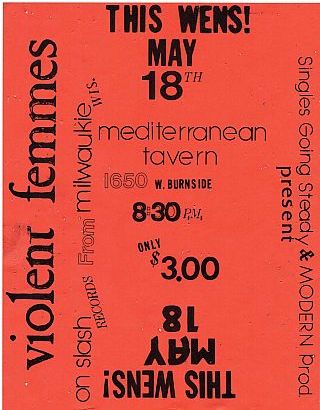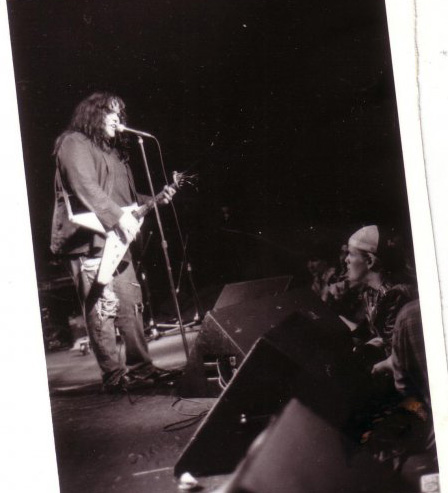A brief history of me getting run out of online communities dedicated to discussing regional music history
In all honesty, outside of the MySpace Satyricon fan page I ran 2006-2009ish, I really haven’t been super active in online communities, but there have been a couple exceptions. I tried to get involved in a “portland punk” oriented community at one point and quickly ran into trouble with a guy named Mark Baar, an old associate of Courtney Love that Chris described as being kind of a thuggish street punk, who didn’t just lie to me, he was abusive, sort of like “who the f are you???” kind of thing. And there was a pile on, with this guy named xj elliot telling me that I was everyone could tell I am just a crazy lady and so of course they all ignore and avoid me. I think that maybe what set this mess off was the perennial “when Kurt met Courtney” discussion, where I chimed in. (Another whole topic.) Several of Courtney’s old school friends were in this group including Robin (Barbur) Bradbury who tried to stand up for me a little bit. But the whole discussion was shut down very quickly with a finalizing decree of We Do Not Speak About Music After 1984. Because in this group, punk ended in 1984. There is another group online, I think it’s called The Rise and Fall of Portland Punk, which declared punk as “over” as of 1981. So if you get into the latter 80s in these groups, you’re off topic and out of line. Perhaps in danger of having the cops called on you. (It seems like I’m exaggerating, but barely. They take this stuff seriously.)
Gatekeeping.
It’s not like I’m in danger of making any enemies at this point that I don’t already have. But what I will say about this here, that I didn’t say there, I find it pretty transparent. In other words, it’s very clear who they are excluding, and it’s Chris Newman. Yes, the group for which punk ended in 1984 can give him a nod, but he’s really not worthy of the group for whom “punk” ended in 1981. In fact, perhaps it is him who is responsible for the “fall” of Portland punk, though they’d never give him that much attention or credit. The thing that is significant to me about 1981 is that is when Sam Henry (of the Wipers and then the Rats) joined forces with Chris and they became Napalm Beach. (It’s also when Poison Idea formed.) The thing that is significant to me about 1984 is that is when Satyricon opened.
These groups include, but are not focused around hardcore punk which got going in the early 1980s but more the open, arty first wave of punk. The concept of punk in the 1980s and 1990s was pretty malleable, from my perspective. But there was often this thing about “I was here first.”
In 2014 was told by an owner/booker of an early club that booked Chris bands a lot that “the Untouchables were not cool” – as if it was self-evident. It was her way of explaining what I saw as writing Chris out of his own history. In other words, only “cool” bands make history. And I’m thinking – wait – you booked them all the time back then, and they were drawing crowds – and now you’re announcing that they were never “cool”? And for that reason, they deserve to be omitted? This too was a script that by that point I’d already heard from a number of people who consider themselves regional arbiters of taste and coolness. But who the arbiters of cool are appears to have been manufactured, too. Young people tend to be impressionable. If a crowd all says “wow this guy is so cool” and you’re just getting started going out to shows, who are you to disagree?
I’ve spoken with Chris a number of times about his early experiences playing in Portland, and what it was like meeting Greg Sage. Chris already knew that Sage was a revered musical genius type. So in 1980, when Sage appeared in front of the stage, studying Chris in action, Chris was excited. They soon developed a working relationship that lasted into the mid 1980s.
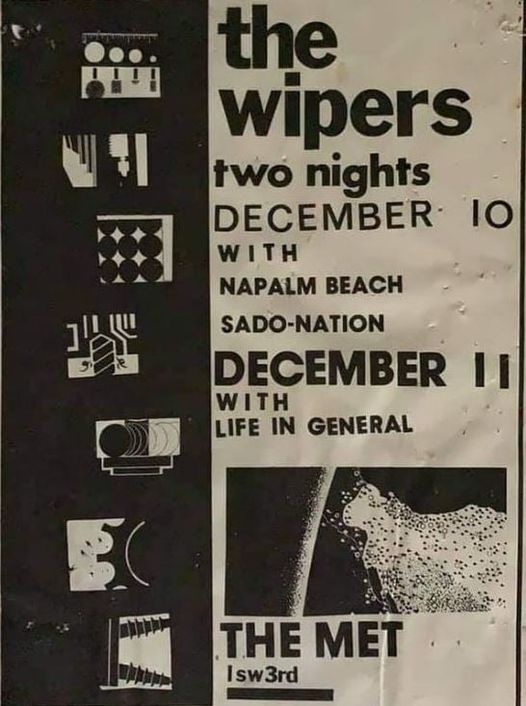
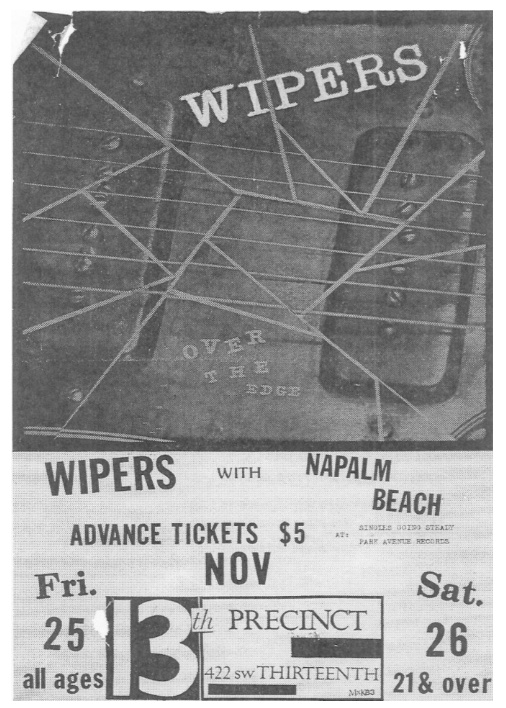
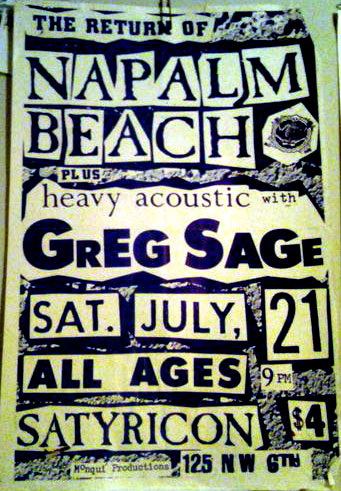
Sometimes I get chastised for having the audacity to speak about things when I wasn’t there. In other words, I’ve looked into something as historical research, rather than a personal memory. It’s a useful stance for gatekeepers, because if I were to accept it as a premise – that an event can only be discussed, or issues around it debated, by those who were physically present at a given event – that would shut me out of all of this. Chris never took this kind of stance, and it’s honesty incredibly disingenuous. But then it is not about history anymore, but a social bonding thing “this is our little group and we all knew each other back in 19XX and we are here to personally reminisce.”
People can do this with their own Facebook groups. What it does, is throw obstacles in my path, as I try to get to the truth of one story or another, and that is by design. It’s pretty clear that aside from Chris, most bands linked to the Portland punk or underground scenes had no expectation or intention of progressing professionally. The only explanation I can think of for this, is they had made some other kind of deal, and Chris’ ambitions, and my ambitions and investigations, are in danger of messing that up for them. And that’s the real reason that my inquiries bother them so tremendously.
What deal do I think Portland made? I think that it wasn’t just Portland but that it includes Seattle, San Francisco, and Los Angeles. I think the deal was that it was their job – a globally-financed team effort – to control, stifle, set up and slander Chris and me. I think it’s understood that’s how to get paid and maybe some minor recognition and rewards. This is why it was so important to keep Chris out of Los Angeles. Because people in Los Angeles want and expect to succeed in music. Eventually they figured out how to make it so some Seattle acts could sneak through (while also preventing Chris from success and inflicting maximum damage on his sense of self-worth). So yeah, every once in a while, someone is let through professionally, to make the stifling not so obvious, but those who are let through are forced to make compromises and are very closely followed, and are in danger of elimination.
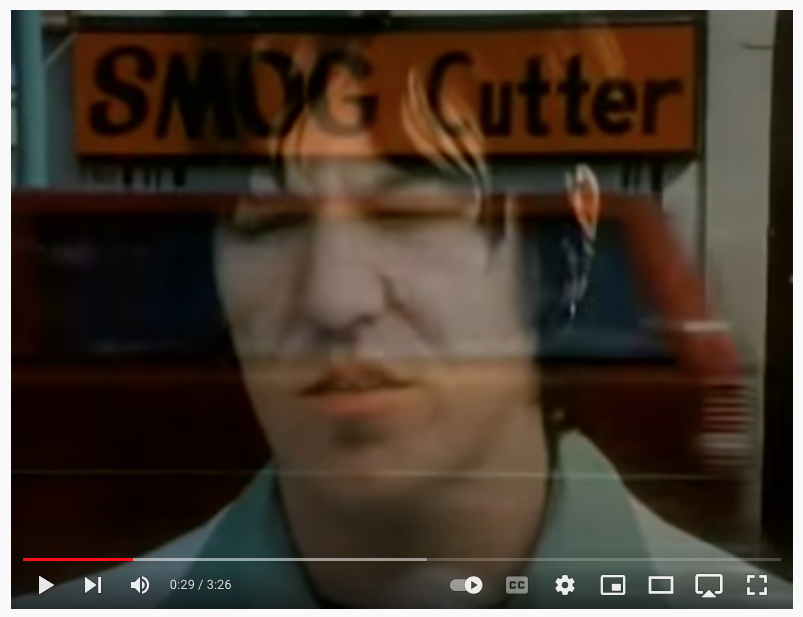
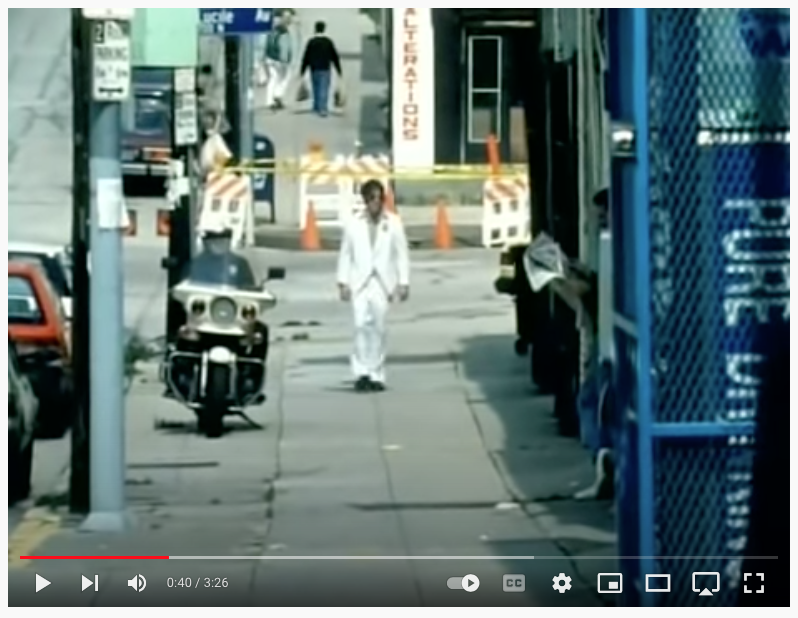
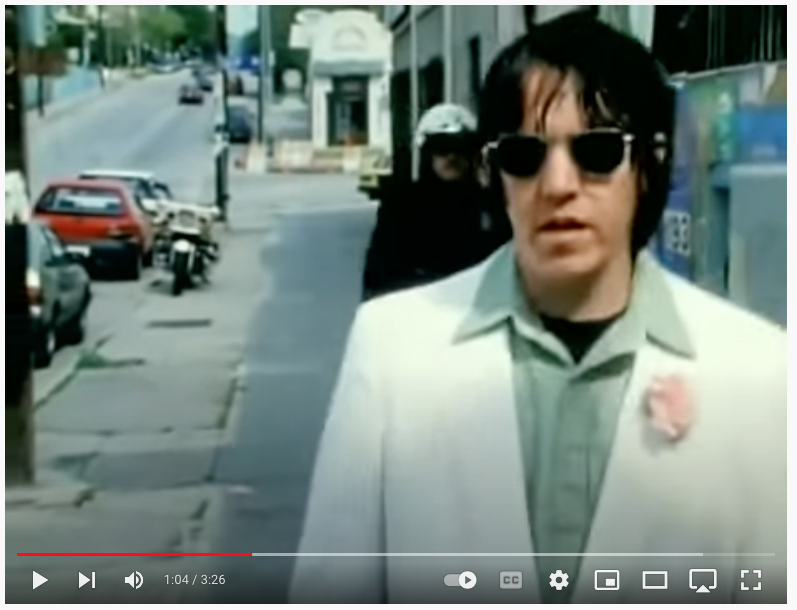
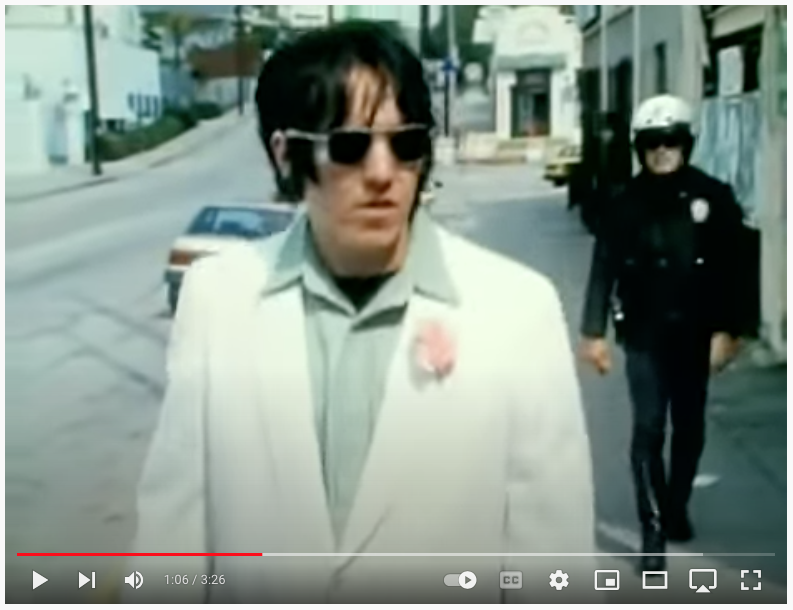
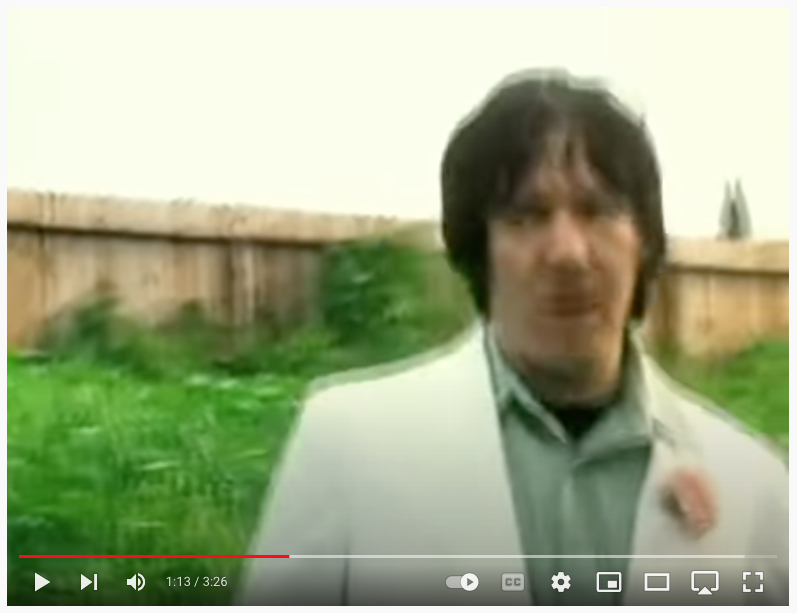
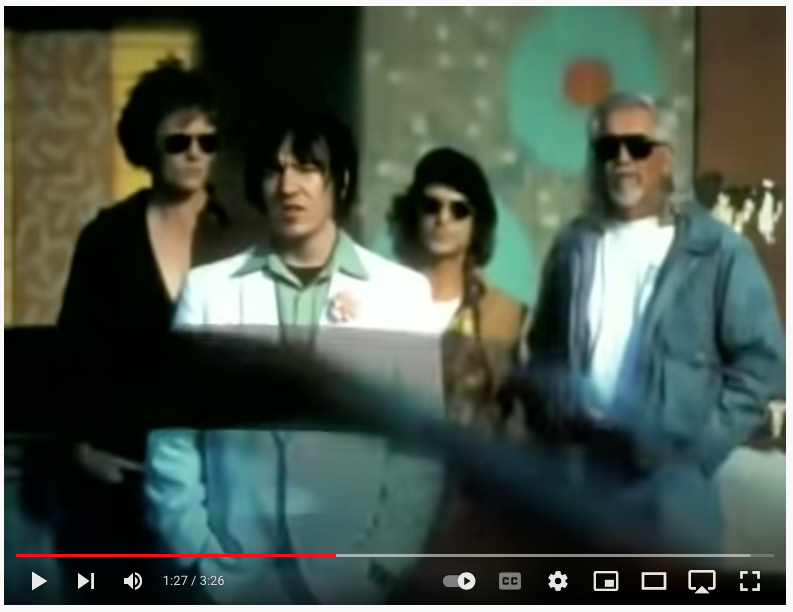
that involved a trip out of town…
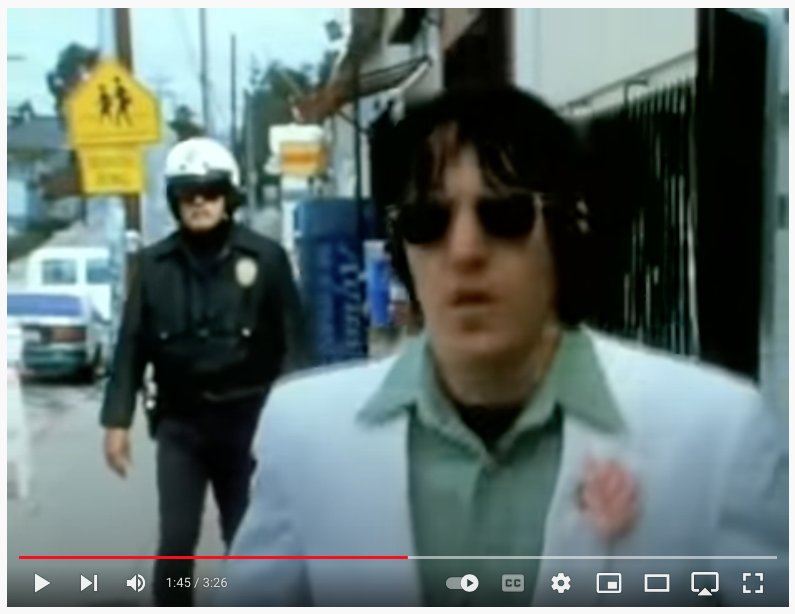
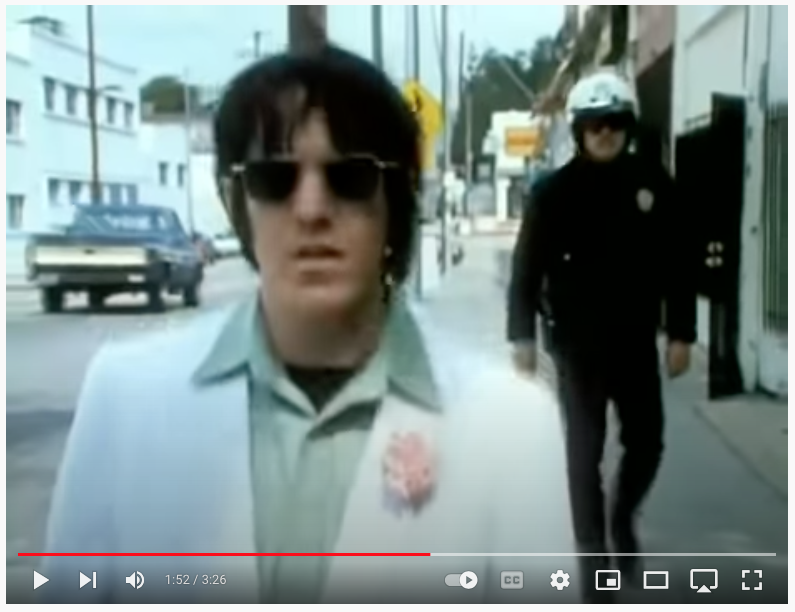
Like you say you do?
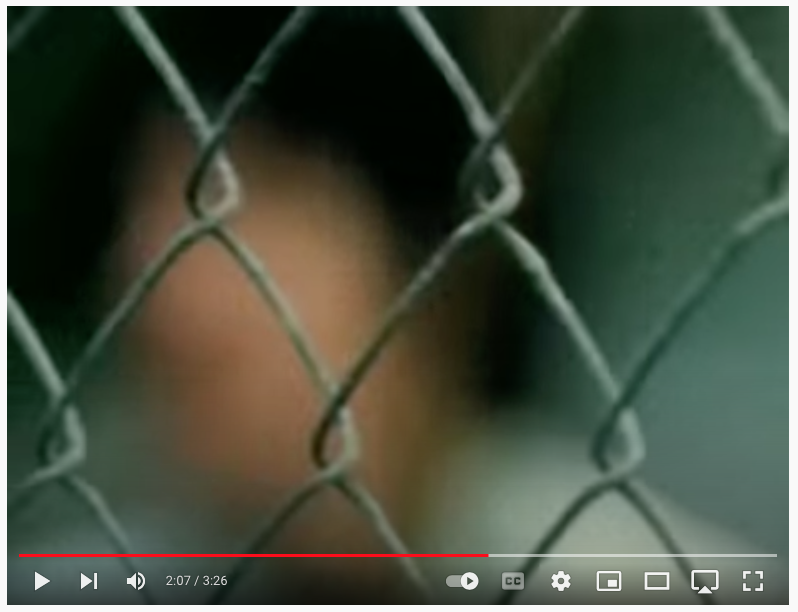
Than to see me the way that I am
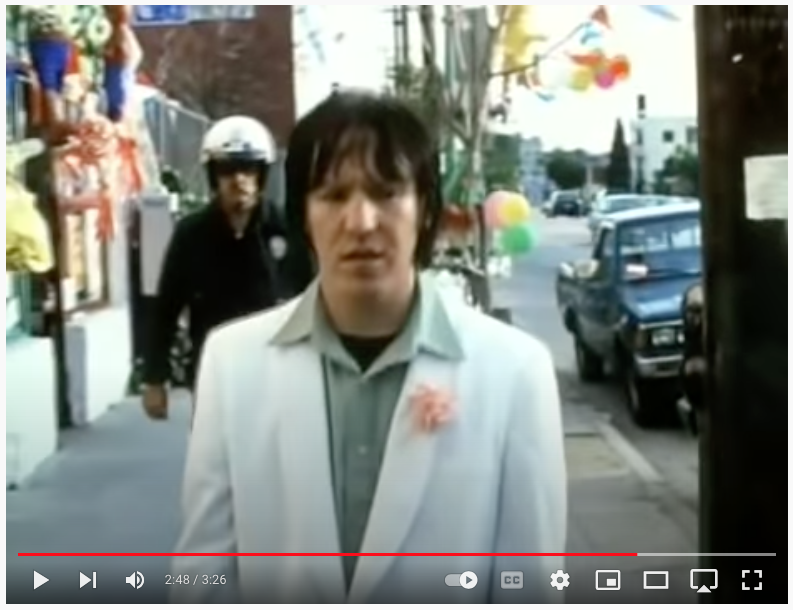
is easy to do
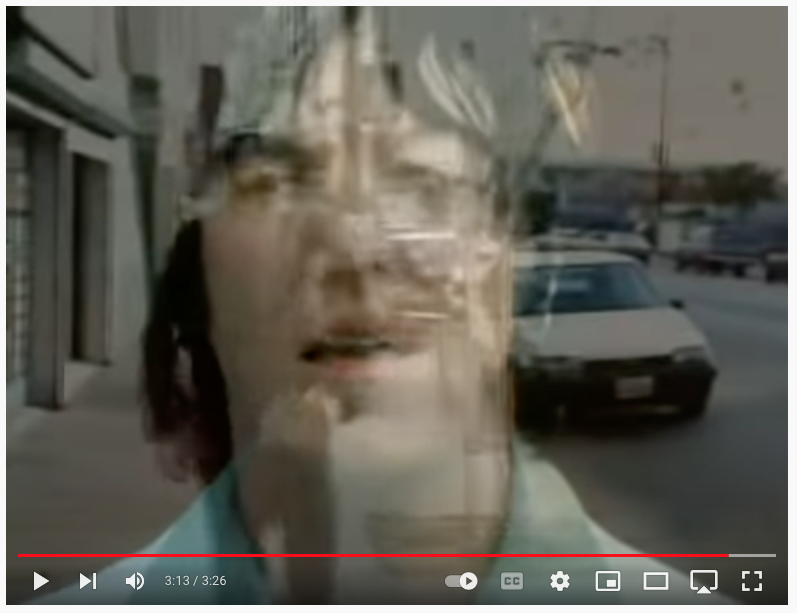
Like you say you do?
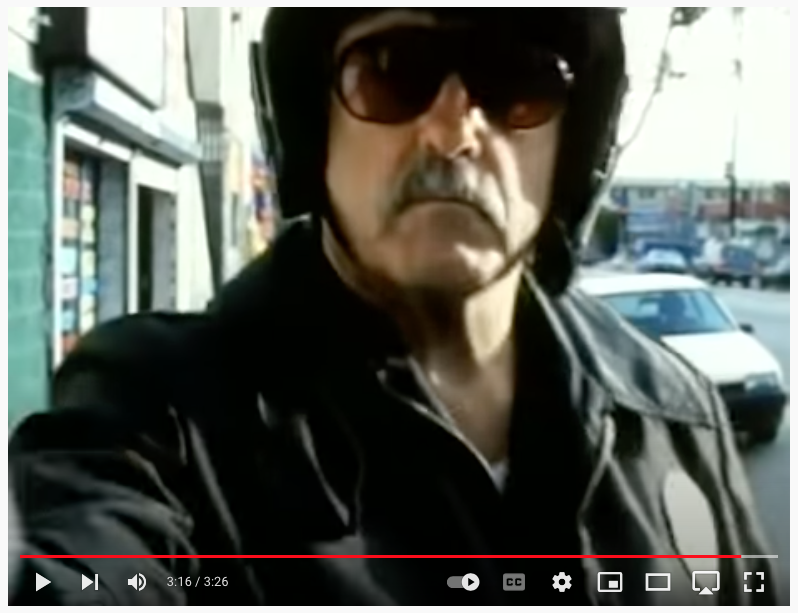
Elliott Smith – Miss Misery
